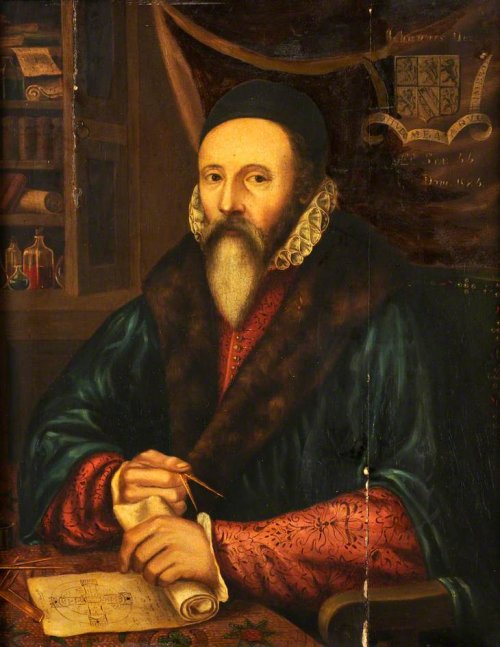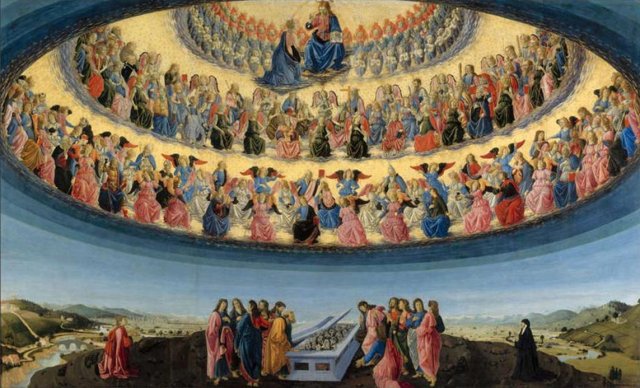Ancient Secrets Of John Dee And The Enochian Apocalypse Examined
AncientPages.com - Doctor John Dee (1527-1609) remains one of London’s most intriguing historical figures.
Dee was a renaissance man; an occultist, mathematician, astronomer, astrologer and navigator. In addition to his prodigious skills, Dee was a confidant of Queen Elizabeth I, who guided the nation through one of its most challenging eras, partly based upon Dee’s unique blend of alchemy, divination and Hermetic philosophy. In fact, the Queen had so much faith in Dee’s calculations she had him choose her coronation date.
By all accounts Dee was a distinctive looking gentleman, respected and admired by many, as John Aubrey describes: “Dee had a very cleare rosie complexion… a long beard as white as milke. A very handsome man… he was tall and slender. He wore a gowne like an artist’s gowne, with hanging sleeves, and a slitt.
A mighty good man he was.”
Dee lived in Mortlake, a West London village mentioned in the 1086 ’Domesday Book’. Here, his modest residence along the River Thames provided easy access for Elizabeth and other dignitaries, especially other occultists, for Dee had amassed what was arguably the grandest esoteric library of his day. Sadly, fashionable apartments now stand where Dee once lived, and a block of council flats across the street boasts his name.
John Dee
What is less known is that Dee was obsessed with the apocalypse, and believed he had opened a supernatural gateway leading to a powerful and disgruntled spirit world. But this came later. During the early part of his career Dee had little interest in the supernatural. He was a devoutly religious man and deeply ambitious.
From the 1550s until the 1570s he honed his skills as a writer as well as a navigator with unique technical expertise. Few recall that he coined the phrase ‘British Empire’ and helped shape the emerging ideology of the nation.
Dee became frustrated with his perceived inability to uncover more occult secrets than he already had obtained, and so began his fascination with the supernatural.
During the 1580s he focused his attention on contacting angels in the spirit realm in order to obtain greater wisdom. Initially Dee tried his hand at using a ‘scrying’ mirror or crystal ball, each of which can be found in the British Museum.
Dee struggled to achieve the results he was hoping for and thus reached out to someone who professed to have expertise in these matters
Enter the occultist and spirit medium Edward Kelley, who stumbled upon a ration of magical red powder, which he had received from an innkeeper in Glastonbury, who had acquired the powder from tomb robbers. In a different version of the story, Elias Ashmole, who wrote the first account of Kelley’s discovery, recounts how Kelley found a book containing the curious powder in the ruins of Glastonbury Abbey. Regardless, Kelley’s desire to learn as much as possible about the magical substance, which he believed could turn base metals into gold, led him to Dee, whose library attracted many such seekers.
Like Dee, Kelley was a fascinating man; a seer whose ritual expertise in the black art of necromancy, combined with his passion for alchemy, and his quest for the Philosopher’s Stone in particular, so impressed Dee that the two soon became inseparable. Together they embarked on a journey that would transform their lives and quite possibly ours too.
Dee and Kelley held various ‘spiritual conferences’; a quest that Dee believed would render immeasurable benefit to mankind. Kelley’s integrity, on the other hand, is the subject of continued debate and in fact before coming to London he was convicted of forging title deeds in Lancaster.
Nevertheless, Kelley became Dee’s regular scryer and the two men appear to have achieved, if not exceeded, their goals, for Dee began to write truly remarkable, albeit sublime, works that he maintained were the product of angels who spoke in language known as Enochian.
In 1583, Dee and Kelley embarked for Europe, seeking the patronage of Emperor Rudolf II in Prague and King Stefan of Poland in Kraków, amongst others.
The two occultists continued their alchemical pursuits on the continent for a number of years. One incident in particular stands out, which stems from their involvement in necromancy. An inquisition by the Catholic Church proved messy, yet both men were acquitted in 1587. That same year the angels instructed Dee, through Kelley, that the two were to share everything, including their wives, which they did. Dee’s wife gave birth nine months later to what is now thought to be Kelley’s child.
See also:
Enoch - The Initiator - Pre-Flood Messenger Of God
Rosicrucians’ Secret Knowledge Of Atlantis, Pyramids And Extraterrestrial Visitations
At the best of times the two men had what could be called a terse relationship, and the ‘sharing’ mandate of the angels angered Dee and led to his break up with Kelley, who later died in prison.
Dee returned to his residence in Mortlake, only to find that his world had changed. Much of his library had been pillaged and his political stature fallen. What little that remained of his relationship with the Queen enabled him to assume the office of Warden at Christ’s College, Manchester in 1595. He returned to Mortlake in 1605, where he died in 1609 and was buried under the high altar of his parish church.
In retrospect, we can glean that the essence of the Enochian dialogues centred upon a coming apocalypse, which Dee’s angels referred to as ‘the Harvest’. Dee and Kelley succeeded in manifesting the spiritual beings they had summoned, and what followed appears to have been the process of opening the gates to another dimension and obtaining the keys required to activate the angels’ agenda, an apocalypse of the mind – a poisoning of man’s spiritual essence and the rapid degeneration of society. In one instance the angel, Mapsama, instructs Dee as to his role in the whole affair:
Mapsama: These Calls are the keyes into the Gates and Cities of wisdom. Which [Gates] are not able to be opened, but with visible apparition.
Dee: And how shall that be come unto?
Mapsama: Which is according to the former instructions: and to be had, by calling of every Table. You called for wisdom, God hath opened unto you, his Judgement: He hath delivered unto you the keyes, that you may enter; But be humble. Enter not of presumption, but of permission. Go not in rashly; But be brought in willingly: For, many have ascended, but few have entered. By Sunday you shall have all things that are necessary to be taught; then (as occasion serveth) you may practice at all times. But you being called by God, and to a good purpose.
Dee: How shall we understand this Calling by God?
Mapsama: God stoppeth my mouth, I will answer thee no more.
The exchange is intriguing and hints at the angels’ selection of Dee as the wick by which the fuse to ignite the end of days would be lit. Had Dee and Kelley unknowingly ushered in the Enochian Apocalypse?
Three centuries later the Golden Dawn incorporated many of its teachings and one of their initiates, Aleister Crowley, picked up where Dee and Kelley had left off. He wrote: “Much of their work still defies explanation.”
Crowley is known to have concentrated on Dee’s ‘Apocalypse Working’, although it is not known whether he accessed the elusive occult key necessary to usher in the apocalypse. Nevertheless, Crowley died in 1947, believing he had opened the gate of the apocalypse almost 45 years earlier, in 1904, when he spiritually ‘received’ The Book of the Law.
Today, we are uncertain if Dee, Kelley or Crowley did in fact unlock the door of the apocalypse, for it is said the apocalypse is a slow-working mental transformation within the collective unconscious of the human race.
Written by: Andrew Gough - New Dawn
This article has been republished with permission of New Dawn Magazine
Copyright © New Dawn If you appreciated this article, please consider a digital subscription to New Dawn.
More From Ancient Pages
-
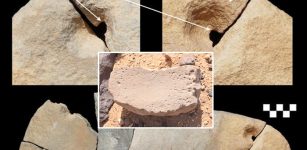 Study: Grinding Tools Were Once Used In Plant, Pigment And Bone Processing At Jebel Oraf Site, Saudi Arabia
Archaeology | Oct 6, 2023
Study: Grinding Tools Were Once Used In Plant, Pigment And Bone Processing At Jebel Oraf Site, Saudi Arabia
Archaeology | Oct 6, 2023 -
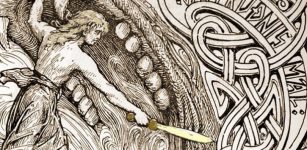 Fenrir Killed At Ragnarok By Vidar Who Avenged His Father Odin’s Death
Featured Stories | Dec 10, 2018
Fenrir Killed At Ragnarok By Vidar Who Avenged His Father Odin’s Death
Featured Stories | Dec 10, 2018 -
 King Solomon Was Invented As Political Propaganda To Unite People Of Judah – Scholars Argue
Biblical Mysteries | Feb 3, 2020
King Solomon Was Invented As Political Propaganda To Unite People Of Judah – Scholars Argue
Biblical Mysteries | Feb 3, 2020 -
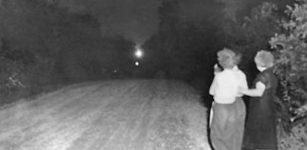 Mysterious Hornet Spook Light In Missouri
Featured Stories | Apr 22, 2020
Mysterious Hornet Spook Light In Missouri
Featured Stories | Apr 22, 2020 -
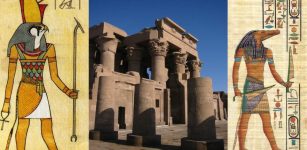 Unusual Double Temple Of Kom Ombo Dedicated To Crocodile God Sobek And Falcon-Headed God Horus
Featured Stories | Mar 14, 2016
Unusual Double Temple Of Kom Ombo Dedicated To Crocodile God Sobek And Falcon-Headed God Horus
Featured Stories | Mar 14, 2016 -
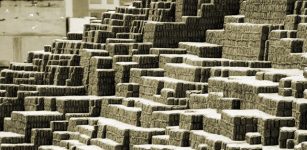 Peru’s Wari Culture And Their Ancient ‘Amunas’ Will Help Peru’s Water
Ancient Technology | Apr 13, 2015
Peru’s Wari Culture And Their Ancient ‘Amunas’ Will Help Peru’s Water
Ancient Technology | Apr 13, 2015 -
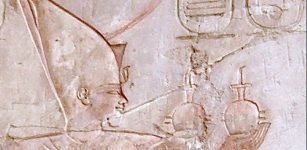 Magnificent Pre-Dynastic City Of Sais And Its Lost Neglected Ruins
Civilizations | Sep 29, 2020
Magnificent Pre-Dynastic City Of Sais And Its Lost Neglected Ruins
Civilizations | Sep 29, 2020 -
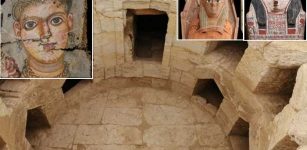 Huge Ptolemaic/Roman Funerary Structure Unearthed In Egypt’s Fayoum
Archaeology | Dec 6, 2022
Huge Ptolemaic/Roman Funerary Structure Unearthed In Egypt’s Fayoum
Archaeology | Dec 6, 2022 -
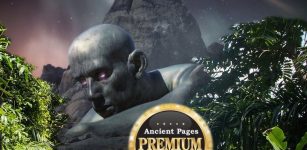 Tribe Recalls Ancient Contact With An Extraterrestrial In The Amazon Jungle And A Strange Beam Of Light
Featured Stories | Jun 25, 2020
Tribe Recalls Ancient Contact With An Extraterrestrial In The Amazon Jungle And A Strange Beam Of Light
Featured Stories | Jun 25, 2020 -
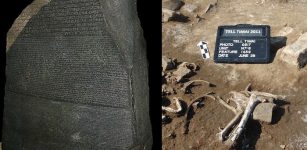 Archaeologists Dug For Evidence Of The Rosetta Stone’s Ancient Egyptian Rebellion – Here’s What They Found
Archaeology | Mar 7, 2023
Archaeologists Dug For Evidence Of The Rosetta Stone’s Ancient Egyptian Rebellion – Here’s What They Found
Archaeology | Mar 7, 2023 -
 Lake Huron Was Home To A 9,000-Year-Old Civilization – Underwater Structures And Artifacts Reveal
Archaeology | Jun 17, 2021
Lake Huron Was Home To A 9,000-Year-Old Civilization – Underwater Structures And Artifacts Reveal
Archaeology | Jun 17, 2021 -
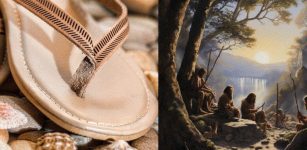 Earliest Evidence Of Flip Flops In The Middle Stone Age
Archaeology | Oct 27, 2023
Earliest Evidence Of Flip Flops In The Middle Stone Age
Archaeology | Oct 27, 2023 -
 Ask And Embla: First Human Pair Created By Powerful God Odin And His Two Brothers
Featured Stories | Sep 24, 2016
Ask And Embla: First Human Pair Created By Powerful God Odin And His Two Brothers
Featured Stories | Sep 24, 2016 -
 Secret Underground Ancient Teotihuacan Tunnel May Solve A Long-Standing Mystery And Reveal Royal Tombs
Civilizations | Jul 8, 2016
Secret Underground Ancient Teotihuacan Tunnel May Solve A Long-Standing Mystery And Reveal Royal Tombs
Civilizations | Jul 8, 2016 -
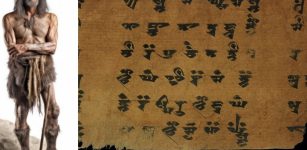 Ancient European Languages Shed Light On A Great Migration And Weather Vocabulary
Archaeology | Aug 14, 2023
Ancient European Languages Shed Light On A Great Migration And Weather Vocabulary
Archaeology | Aug 14, 2023 -
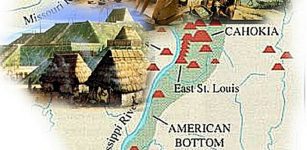 Unsolved Mysteries Of Cahokia – What Really Happened With The Large Metropolis?
Civilizations | Jan 15, 2015
Unsolved Mysteries Of Cahokia – What Really Happened With The Large Metropolis?
Civilizations | Jan 15, 2015 -
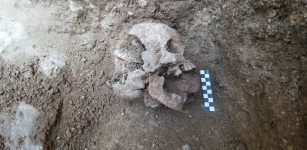 ‘Vampire Of Lugnano’ And Old Beliefs In Witchcraft: Eerie And Weird Discovery In Italy
Archaeology | Oct 13, 2018
‘Vampire Of Lugnano’ And Old Beliefs In Witchcraft: Eerie And Weird Discovery In Italy
Archaeology | Oct 13, 2018 -
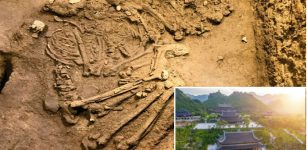 Oldest Human Remains Unearthed In Vietnam
Archaeology | Nov 15, 2023
Oldest Human Remains Unearthed In Vietnam
Archaeology | Nov 15, 2023 -
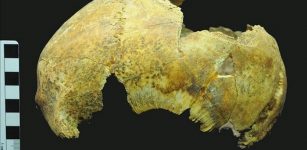 5,000-Year-Old Russian Skull Offers Evidence Of Brain Surgery Made With Stone Scalpel
Archaeology | Oct 23, 2020
5,000-Year-Old Russian Skull Offers Evidence Of Brain Surgery Made With Stone Scalpel
Archaeology | Oct 23, 2020 -
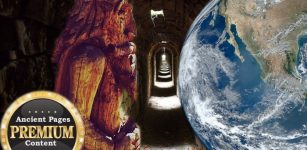 Mysterious Advanced Underground Civilization And A Secret Society – Dangerous Knowledge And Verdict – Part 3
Featured Stories | Apr 24, 2018
Mysterious Advanced Underground Civilization And A Secret Society – Dangerous Knowledge And Verdict – Part 3
Featured Stories | Apr 24, 2018

